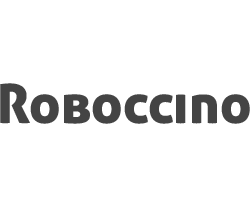The Ultimate Guide to Sourcing High Quality Coffee: Unlocking Market Trends and Consumer Insights
In recent years, the global demand for high quality coffee has surged, driven by evolving consumer preferences and a growing appreciation for specialty brews. According to the International Coffee Organization, global coffee consumption reached approximately 166.63 million 60-kilogram bags in 2021, with specialty coffee accounting for a significant portion of this growth. As consumers increasingly seek unique flavors and sustainable sourcing practices, the market for high quality coffee continues to expand. Reports indicate that the specialty coffee market alone is projected to grow at a compound annual growth rate (CAGR) of 10.2% from 2021 to 2028. This shift presents both challenges and opportunities for roasters and retailers alike, making it essential to unlock market trends and consumer insights to effectively meet this demand. In this guide, we will explore essential strategies for sourcing high quality coffee, ensuring you stay ahead in this dynamic market landscape.

Understanding the Growing Demand for Alternative Coffee Types in 2023
In 2023, the coffee market is undergoing a significant transformation driven by evolving consumer preferences and a growing demand for alternative coffee types. According to a recent report by the National Coffee Association, nearly 60% of coffee drinkers are now opting for non-traditional beverages, such as cold brew and specialty coffees, reflecting a shift toward innovative brewing methods and unique flavor profiles. This trend highlights the consumers' desire for more than just a caffeine fix; they are increasingly seeking out experiences and quality in their coffee choices.
The rise of plant-based and single-origin coffee options further underscores the changing landscape. Research from Statista indicates that the alternative coffee segment, which includes options like oat milk lattes and artisanal blends, is projected to grow at a compound annual growth rate of over 8% through 2025. Millennial and Gen Z consumers, in particular, are driving this trend, as they prioritize sustainability and ethical sourcing in their purchasing decisions. This demographic is not just looking for a drink; they are investing in brands that align with their values, making it imperative for coffee producers to adapt to these emerging market trends to capture this lucrative consumer base.

Exploring Market Trends: The Rise of Plant-Based and Specialty Coffee Products
As the coffee market evolves, a noticeable shift towards plant-based and specialty coffee products is redefining consumer preferences. The rise of dairy alternatives, such as oat, almond, and coconut milk, is enabling coffee enthusiasts to enjoy their favorite beverages while aligning with a more sustainable lifestyle. These plant-based options not only enhance flavor profiles but also cater to the growing demand for vegan and lactose-free alternatives, opening up new avenues for coffee brands to innovate and attract a wider audience.
Moreover, specialty coffee has gained momentum among consumers who seek unique flavors and high-quality sourcing. With a focus on ethically sourced beans and artisanal brewing techniques, this segment emphasizes transparency and quality over quantity. Coffee drinkers are becoming increasingly educated about their choices, often seeking out single-origin beans or those produced under direct trade agreements. This trend not only illustrates a commitment to quality but also underscores a broader consumer movement towards sustainability and social responsibility in the coffee industry. As these market trends continue to unfold, brands that embrace these changes will undoubtedly thrive in the competitive landscape.
The Ultimate Guide to Sourcing High Quality Coffee: Unlocking Market Trends and Consumer Insights
| Market Segment | Current Trend | Growth Rate (%) | Consumer Preference (%) | Average Price ($/lb) |
|---|---|---|---|---|
| Specialty Coffee | Increasing demand for single-origin | 8.5% | 65% | 16.00 |
| Plant-Based Creamers | Rise in vegan coffee options | 10.2% | 48% | 4.50 |
| Cold Brew Coffee | Popularity in ready-to-drink formats | 12.0% | 55% | 9.00 |
| Sustainable Sourcing | Ethically sourced products gaining traction | 7.8% | 58% | 15.50 |
| Flavored Coffee | Growing interest in unusual flavors | 6.0% | 42% | 10.00 |
Consumer Insights: Profiling the Health-Conscious Coffee Enthusiast
As the coffee market evolves, understanding the profile of health-conscious coffee enthusiasts becomes essential for brands aiming to cater to this segment. Recent studies reveal that 57% of coffee consumers prioritize health benefits in their beverage choices, seeking options like organic and low-acid coffees. This demographic is increasingly concerned about the origins of their coffee, with 75% willing to pay more for sustainably sourced products. Such insights suggest that consumers are not only driven by flavor but also by the impact of their choices on health and the environment.
Tip: To connect with health-conscious consumers, consider emphasizing the nutritional benefits of your coffee, such as antioxidants and the presence of essential vitamins. Highlighting eco-friendly sourcing practices can also resonate well with this audience.
Moreover, the rise of alternative brewing methods, such as cold brew and nitro coffee, appeals to this demographic’s desire for unique experience and convenience. About 40% of millennials report that they prefer cold brew coffee for its smooth flavor and lower acidity, making it easier on the stomach.
Tip: Incorporate innovative brewing techniques in your product offerings and marketing efforts to attract these younger, health-focused coffee drinkers. Offering samples or insights into these brewing methods could enhance consumer engagement.
Innovative Sourcing Strategies for High-Quality Alternative Coffee Beans
In recent years, the coffee market has evolved significantly, driving the need for innovative sourcing strategies to meet the growing demand for high-quality alternative coffee beans. Consumers are becoming more discerning, seeking unique flavors and sustainable practices from their coffee suppliers. To tap into this trend, roasters and retailers must focus on building direct relationships with farmers who cultivate specialty beans. By sourcing directly, they can ensure quality, transparency, and fair compensation for growers, creating a win-win situation for all parties involved.

Additionally, exploring regions previously overlooked for coffee cultivation can yield extraordinary results. Growing areas such as Africa’s lesser-known coffee regions or emerging markets in Asia offer distinct flavors and profiles that appeal to adventurous coffee drinkers. Investing in technology and data analysis helps identify these untapped sources, enabling businesses to stay ahead of market trends. Emphasizing storytelling about the origins and unique characteristics of these beans can further attract consumers who value authenticity and sustainable sourcing practices. By prioritizing innovation in sourcing, brands can elevate their offerings and cater to the evolving preferences of the modern coffee enthusiast.
Analyzing the Sustainability Impact of Alternative Coffee Sourcing Practices
In the current coffee landscape, sustainability has become a critical factor influencing sourcing practices. According to the 2022 National Coffee Association report, 60% of consumers are more likely to buy coffee that is marketed as sustainable and ethically sourced. This shift indicates not only a market trend but also a growing consumer awareness about the environmental and social impacts of coffee production. Alternative sourcing practices, such as direct trade and organic farming, have emerged as effective methods to enhance sustainability, reduce carbon footprints, and improve the livelihoods of farmers.
Tip: When sourcing coffee, prioritize suppliers who provide transparency about their sourcing practices and sustainability efforts. Brands that engage in direct trade models often guarantee better pricing for farmers, incentivizing sustainable cultivation methods and ensuring higher quality beans.
Moreover, the environmental implications of coffee farming cannot be ignored. The World Coffee Research organization has noted that conventional coffee farming practices contribute significantly to deforestation and biodiversity loss. In contrast, regenerative agriculture techniques, which focus on restoring ecosystems, are showing promise. For instance, implementing shade-grown coffee methods can enhance biodiversity while increasing crop resilience to climate change.
Tip: Look for certifications such as Rainforest Alliance or Fair Trade when purchasing coffee, as these not only promote sustainability but also reflect a commitment to social responsibility within the coffee supply chain.
The Impact of Sourcing Practices on Coffee Quality and Sustainability
Related Posts
-

Top 10 High-Quality Coffee Manufacturers from China at the 137th Canton Fair
-

Maximizing Your Investment in Coffee for Business with Topnotch Support and Maintenance Solutions
-

Ultimate Guide to Choosing the Best Coffee Machine for Your Business Needs
-

Future Trends in Cafe Equipment Purchasing and How to Choose the Best Coffee Machine
-

Master the Art of Coffee with Your Own Barista Bot
-

7 Incredible Coffee Machines Every Cafe Must Have

